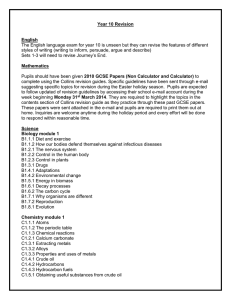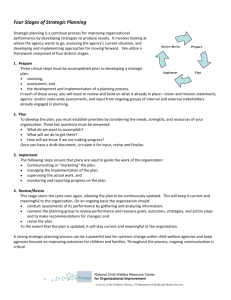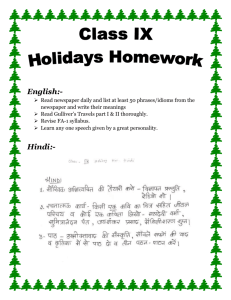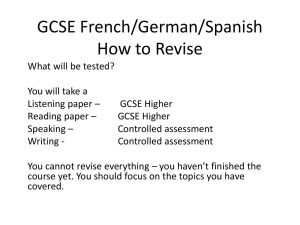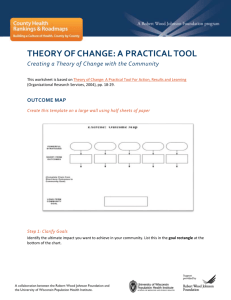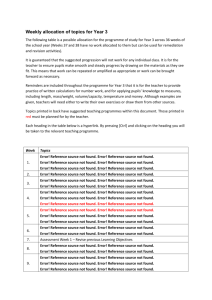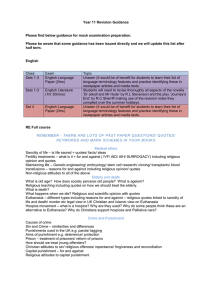Year 10 Revision
advertisement
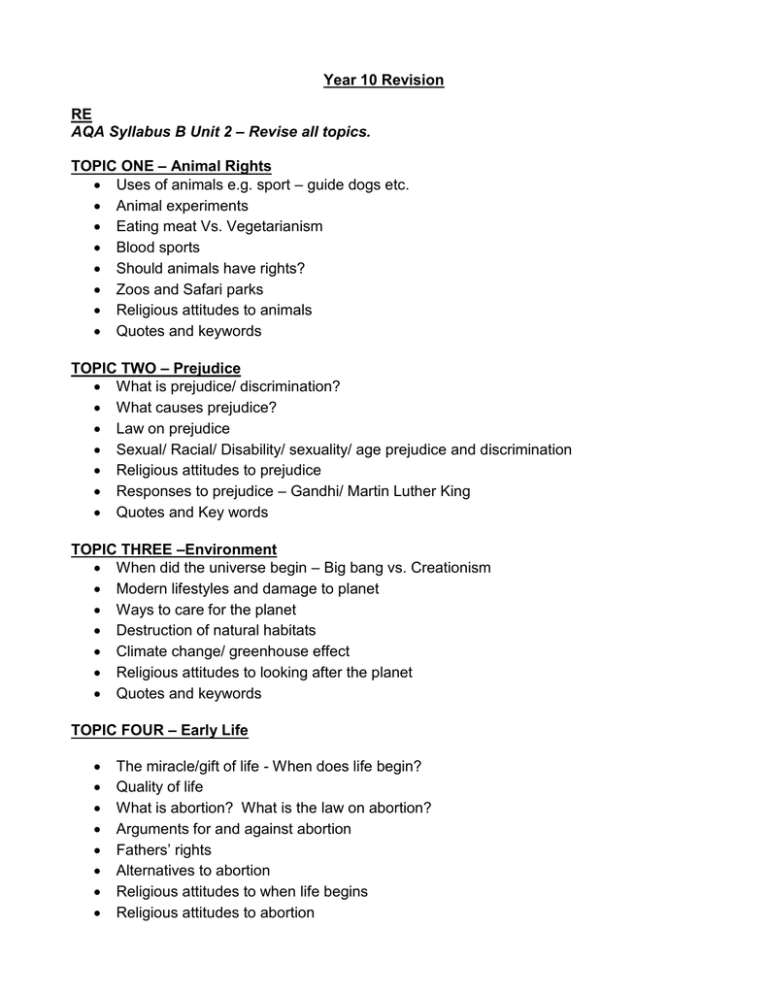
Year 10 Revision RE AQA Syllabus B Unit 2 – Revise all topics. TOPIC ONE – Animal Rights Uses of animals e.g. sport – guide dogs etc. Animal experiments Eating meat Vs. Vegetarianism Blood sports Should animals have rights? Zoos and Safari parks Religious attitudes to animals Quotes and keywords TOPIC TWO – Prejudice What is prejudice/ discrimination? What causes prejudice? Law on prejudice Sexual/ Racial/ Disability/ sexuality/ age prejudice and discrimination Religious attitudes to prejudice Responses to prejudice – Gandhi/ Martin Luther King Quotes and Key words TOPIC THREE –Environment When did the universe begin – Big bang vs. Creationism Modern lifestyles and damage to planet Ways to care for the planet Destruction of natural habitats Climate change/ greenhouse effect Religious attitudes to looking after the planet Quotes and keywords TOPIC FOUR – Early Life The miracle/gift of life - When does life begin? Quality of life What is abortion? What is the law on abortion? Arguments for and against abortion Fathers’ rights Alternatives to abortion Religious attitudes to when life begins Religious attitudes to abortion Quotes and keywords English The English language exam for year 10 is unseen but they can revise the features of different styles of writing (writing to inform, persuade, argue and describe) Sets 1-3 will need to revise Journey’s End. Mathematics Pupils should have given 2011 GCSE Papers (Non Calculator and Calculator) to complete using the CGP revision guides. Specific guidelines have been sent through e-mail suggesting specific topics for revision. Please read a detailed email sent to your school account on 27 th March 2013. Pupils are required to highlight the topics in the contents section of CGP as they practice through these past GCSE papers. These papers were sent attached in the e-mail and pupils are required to print them out at home. Science Biology module 1 B1.1.1 Diet and exercise B1.1.2 How our bodies defend themselves against infectious diseases B1.2.1 The nervous system B1.2.2 Control in the human body B1.2.3 Control in plants B1.3.1 Drugs B1.4.1 Adaptations B1.4.2 Environmental change B1.5.1 Energy in biomass B1.6.1 Decay processes B1.6.2 The carbon cycle B1.7.1 Why organisms are different B1.7.2 Reproduction B1.8.1 Evolution Chemistry module 1 C1.1.1 Atoms C1.1.2 The periodic table C1.1.3 Chemical reactions C1.2.1 Calcium carbonate C1.3.1 Extracting metals C1.3.2 Alloys C1.3.3 Properties and uses of metals C1.4.1 Crude oil C1.4.2 Hydrocarbons C1.4.3 Hydrocarbon fuels C1.5.1 Obtaining useful substances from crude oil C1.5.2 Polymers C1.5.3 Ethanol C1.6.1 Vegetable oils C1.6.2 Emulsions C1.6.3 Saturated and unsaturated oils C1.7.1 The Earth’s crust C1.7.2 The Earth’s atmosphere Physics module 1 P1.1.1 Infrared radiation P1.1.2 Kinetic theory P1.1.3 Energy transfer by heating P1.1.4 Heating and insulating buildings P1.2.1 Energy transfers and efficiency P1.3.1 Transferring electrical energy P1.4.1 Generating electricity P1.4.2 The National Grid GCSE PE Key concepts and key processes in physical education. Fundamental movement skills. Decision making. Components of fitness. The importance of a warm-up and cool-down. The characteristics of skilful movement. Performance and outcome goals. Assessing the body’s readiness for exercise and training. Balanced, healthy lifestyle including the components of diet. Reasons for participation in sport. Pathways into sport. This comprises all of unit B451. French Listening Higher (45 minutes + 5 min) You need to revise the following topics: Social Issues Jobs School Health Issues Celebrations Environment Holidays Television Relationships Reading Higher (50 minutes) You need to revise the following topics: The environment Mobile phones in school Job adverts Going on holiday Healthy and unhealthy lifestyles Jobs in tourism Speaking Learn and practise key vocabulary on ‘Ma famille’. Writing Learn and practise key vocabulary on ‘Les sports’. Please learn off by heart: Vocabulary for each unit studied from your Expo TB Module 1: Moi, pp 26/27 Module 2: Mon temps libre, pp46/47 Module 3: Là où j’habite, pp64/65 Module 4 : Allons-y, pp86/87 Module 5 : Le collège, pp106/107 Module 6 : Il faut bosser, pp124/125 Module 7 : Tourisme, pp146/147 Module 8 : Mode de vie, pp164/165 Module 9 : Le monde en danger, pp180/181 Useful Websites: BBC GCSE Bitesize http://www.bbc.co.uk/schools/gcsebitesize/french/ Linguascope http://www.linguastars.com/ Username: mflpriory, Password: languages Zut http://www.zut.org.uk/index.html Click on Year 10/11 and choose a topic you want to revise. Espaňol Learn all Units 1, 5 and 6, vocabulary from your Mira textbook book. Focusing on Unit 5 “los trabajos” for our next controlled assessment/ Writing a covering letter. Reading practice from your Mira textbookpages:182,183,184,185,186,187,188,189,190,191, Thorough revision of verb table, pages: 232 & 233(present, past, future and imperfect tenses). Reading and listening practice from doddle website To thoroughly learn your speaking controlled assessment Learn your negatives page 220/221 Textiles Sustainability (chapter 6 and 10 of text book) Basic textiles equipment and their uses (p.68 -71) Health and safety (p133-138) Non-woven fabrics (p39-40) Computer applications in textiles (chapter 4) Manufacturing in quantity (p.119-120) GCSE Drama The group must revise for their written examination using past exam papers provided. They must revise specific drama terminology from their Vocabulary books, as well as update and revise their log book notes for their devised piece and scripted piece ‘Two’. They MUST all be 100 percent clear as to the rehearsal process as well as the success of their final performances. Geography Changing Urban Environments What is urbanisation? How and when did it happen in poor and rich countries? The 5 key issues in British cities (traffic/multicultural mix/Inner city/CBD/Housing) How can urban living be more sustainable? (with examples) A case study for sustainable urban living Features of a shanty town and why they exist How a shanty town can change and improve over time (with a case study) Examples of land, air and water pollution in poor world cities and the solutions to them The restless earth The structure of the Earth What happens at plate margins (constructive, destructive, conservative) How are fold mountains formed – What are the advantages and disadvantages of fold mountains? How are volcanoes formed (composite and shield) The causes and effects of one volcanic eruption (e.g. Nevado del Ruiz / Mt St Helens) What can be done to reduce the impacts of an eruption? What is a supervolcano – what are the potential impacts. What causes earthquakes and how can they be managed? Case study Haiti and Kobe. What causes tsunamis? What are their impacts? What can be done to reduce the impacts? Water on the land The hydrological cycle The features of a drainage basin Processes of erosion and transportation Changes in long and cross profiles downstream Landforms resulting from erosion: waterfalls and gorges Landforms resulting from erosion and deposition: meanders and ox bow lakes. Landforms resulting from deposition: levees. Causes and effects of flooding in an MEDC and an LEDC (Boscastle and Bangladesh) Management strategies to cope with flooding. (hard and soft engineering) History Topics are: Hippocrates and the Four Humours Asclepius & what happened at an Asclepion Beliefs about illness in the Middle Ages Beliefs about illness and treatment in the 19th Century Egyptians and health Greeks & Romans – what did they do, and which is more important? The role of monasteries in the Middle Ages Pare, Vesalius, Harvey – what did they do, and who is more important? Florence Nightingale Solving the problem of bleeding Lister and Simpson – what did they do, and who is more important? Food Technology Please see topic list at the front of your folder for more detail on each section: Design Process Product Development Product Planning Nutrients Diet Modifying recipes Food choice Special dietary needs Food commodities Function of ingredients Processes and skills Health and Safety Product analysis Sustainable design
